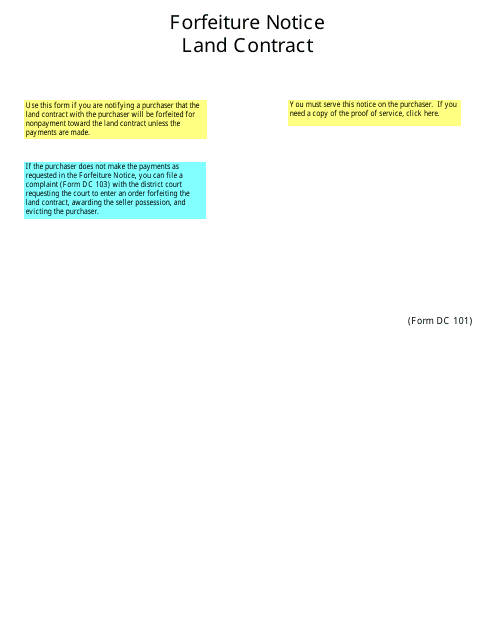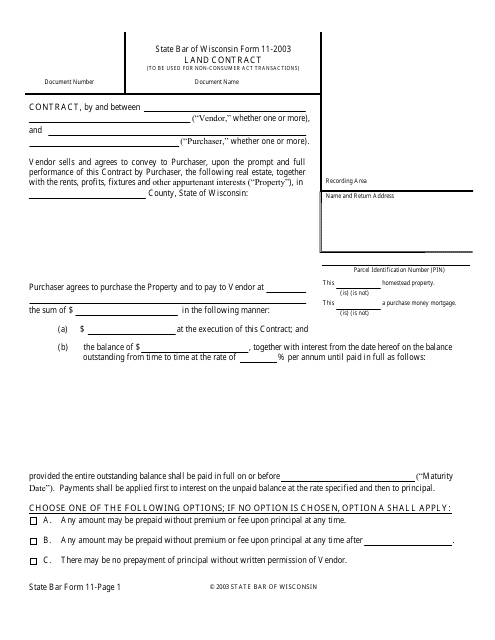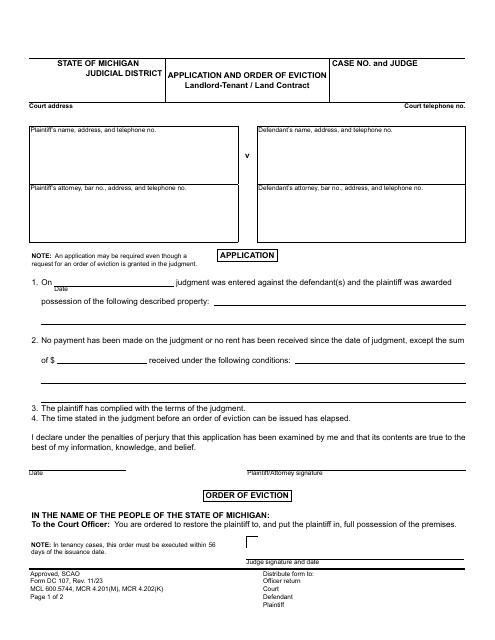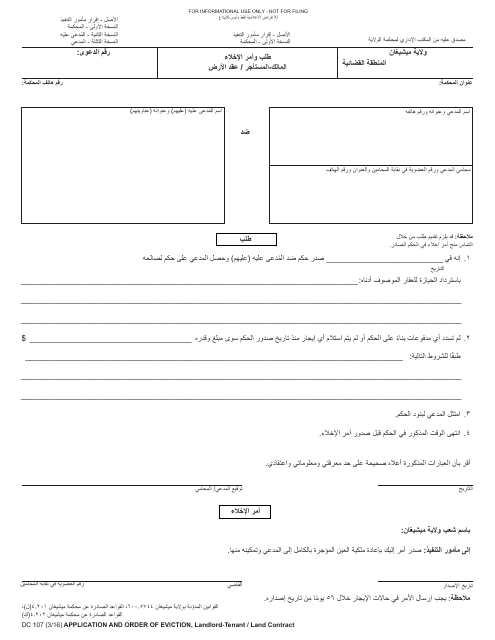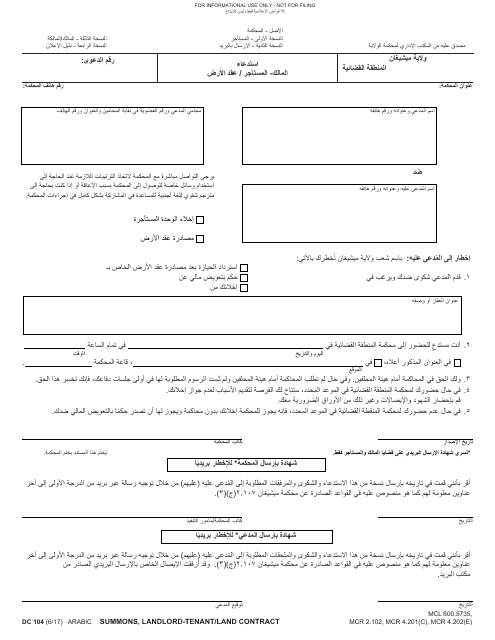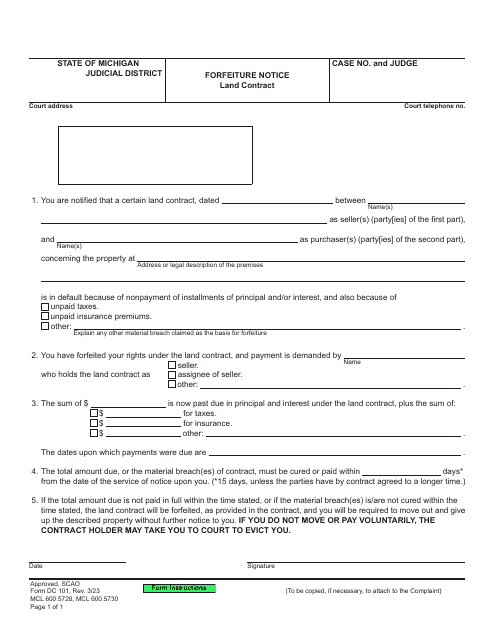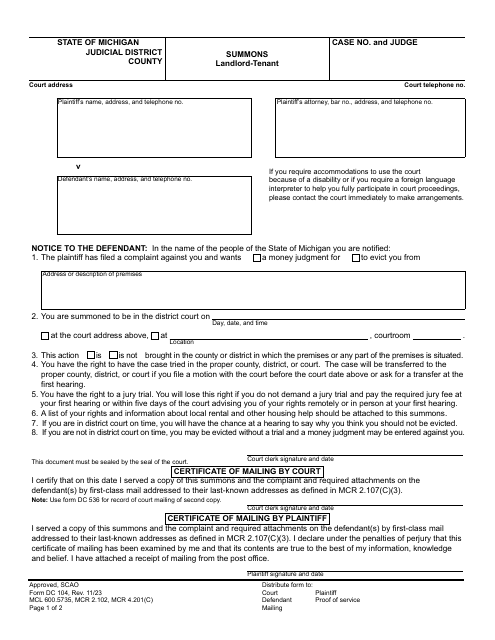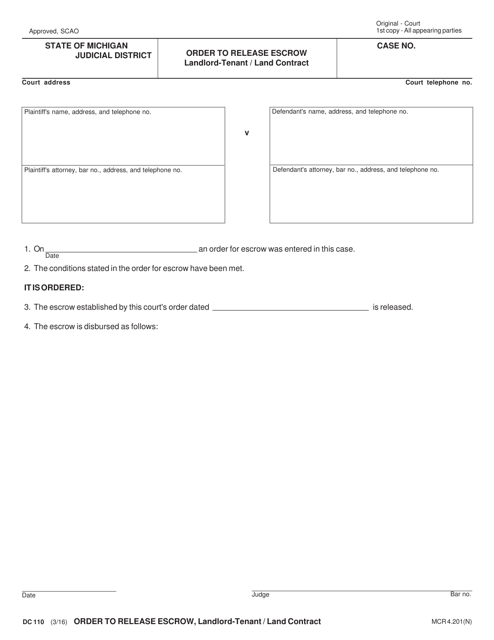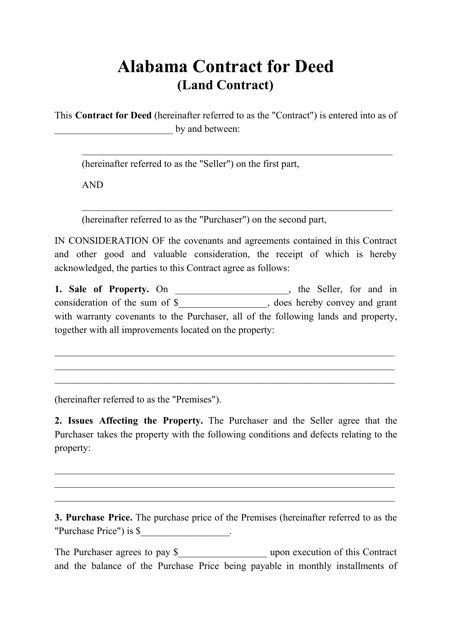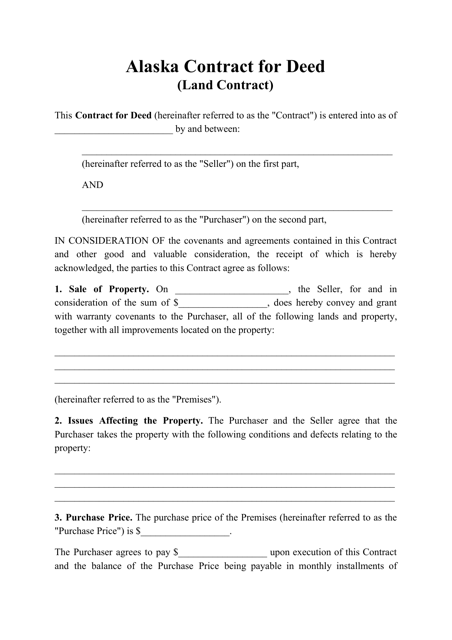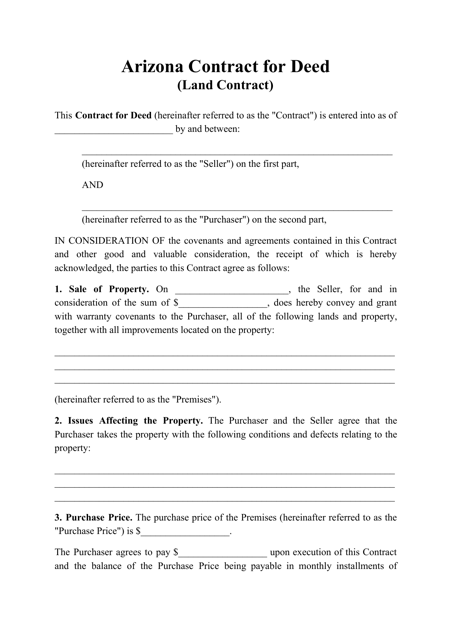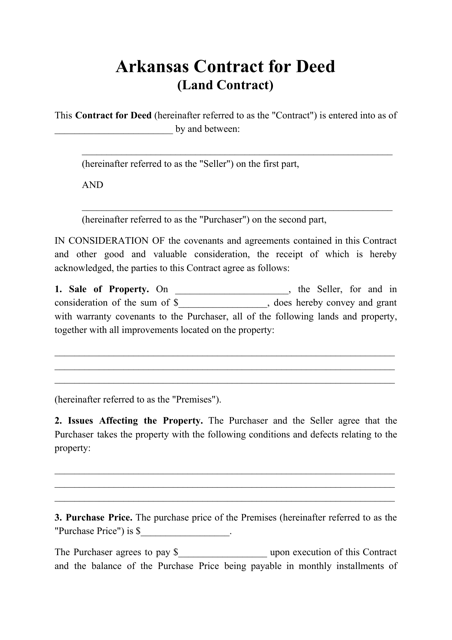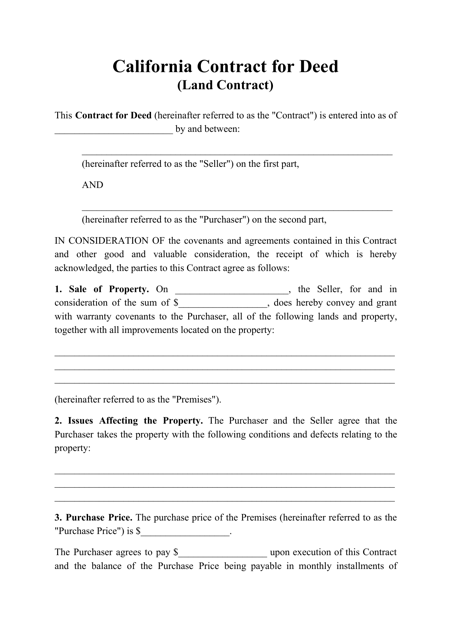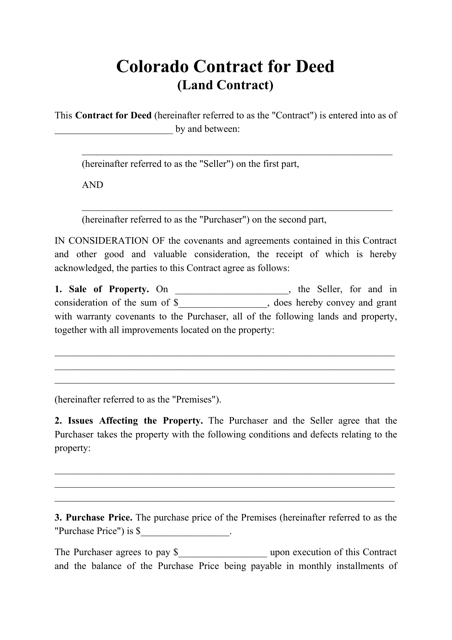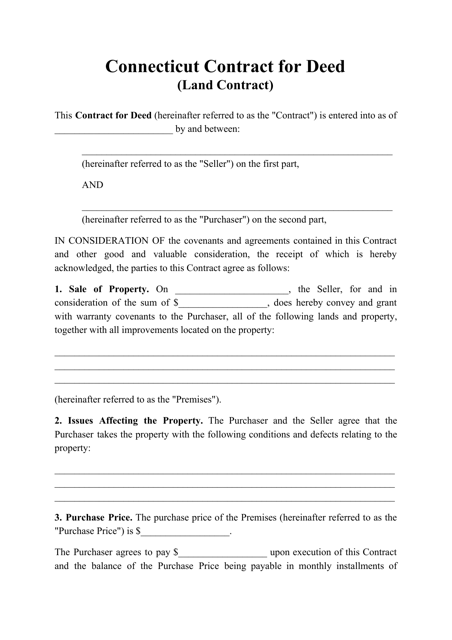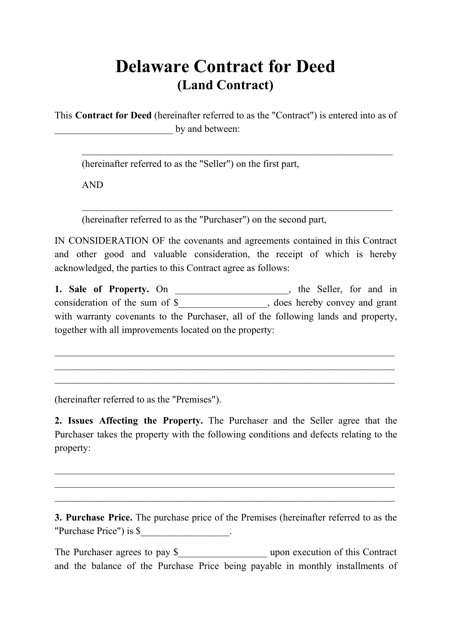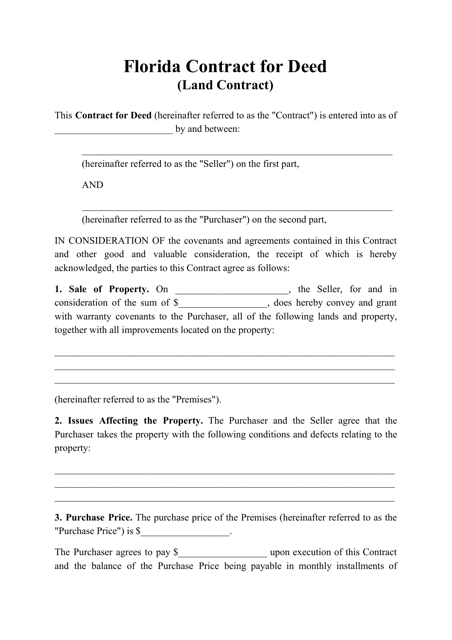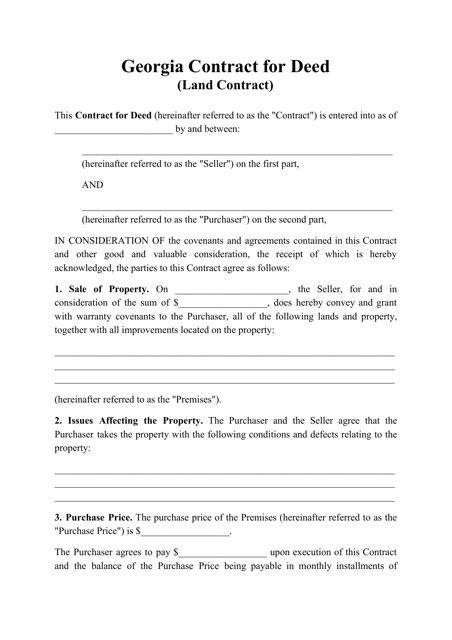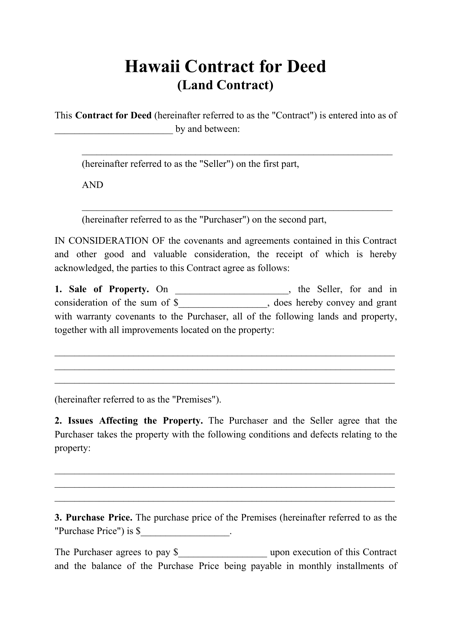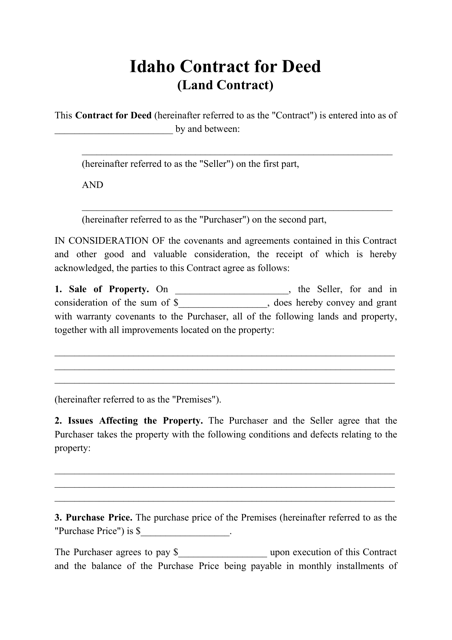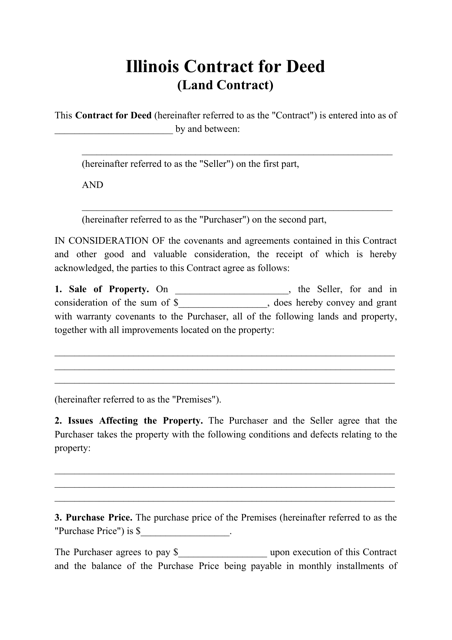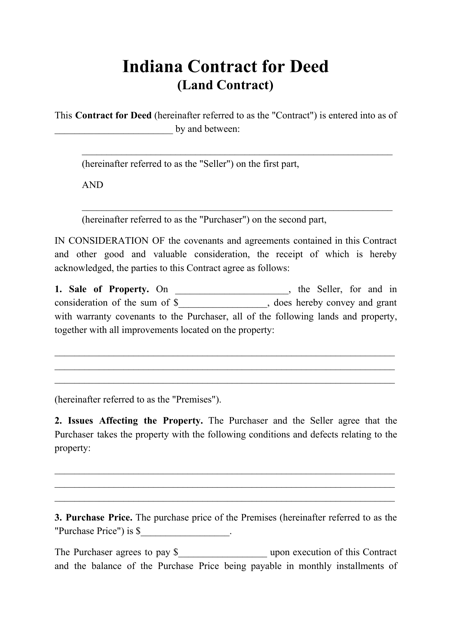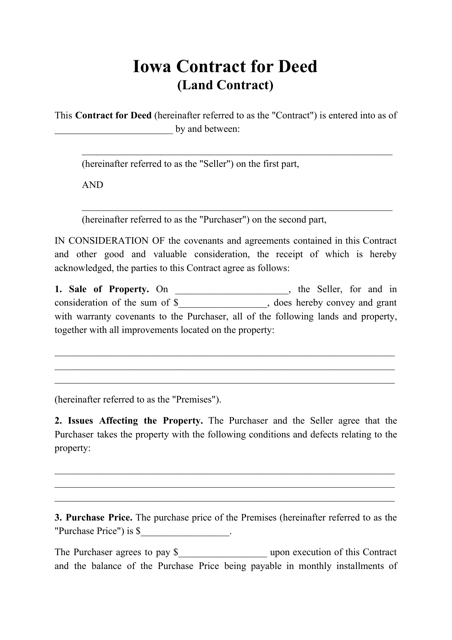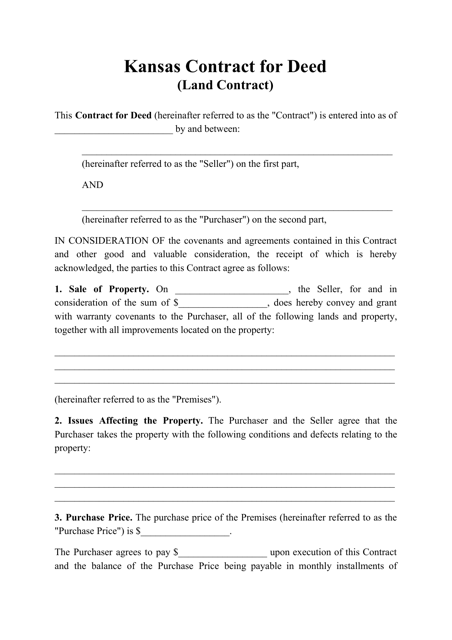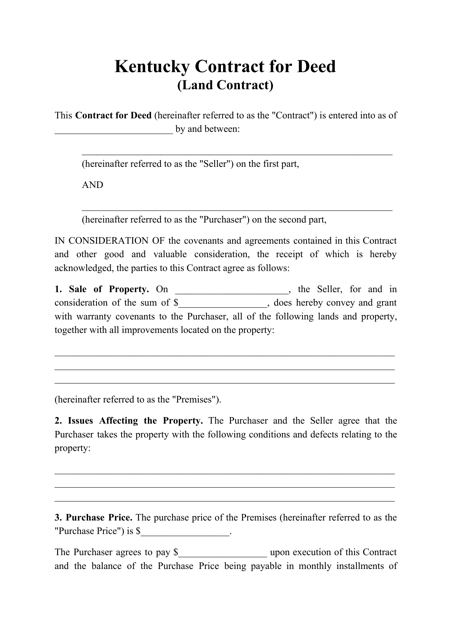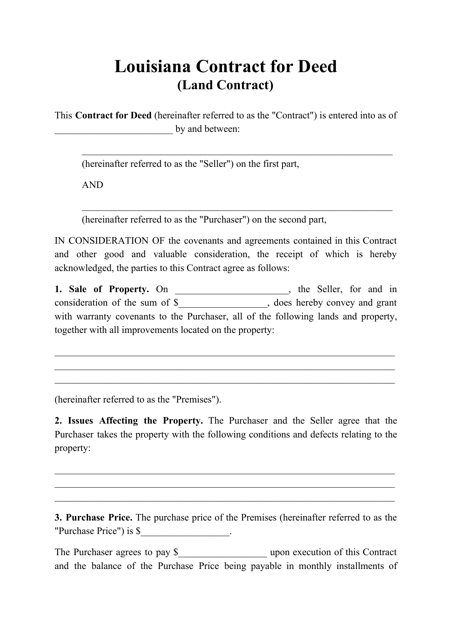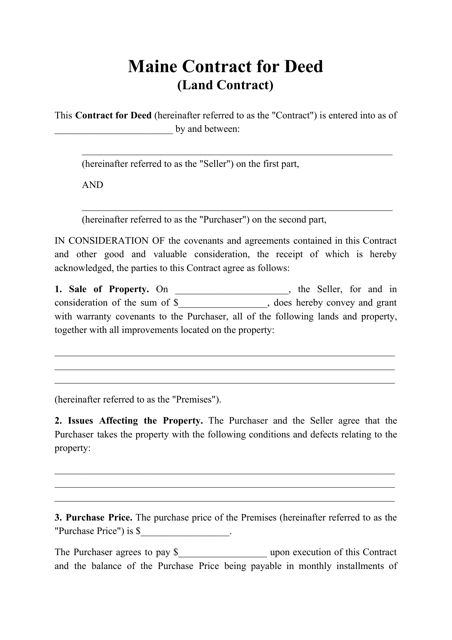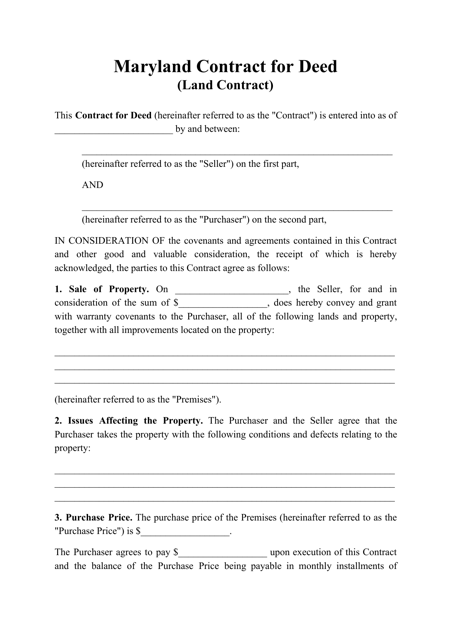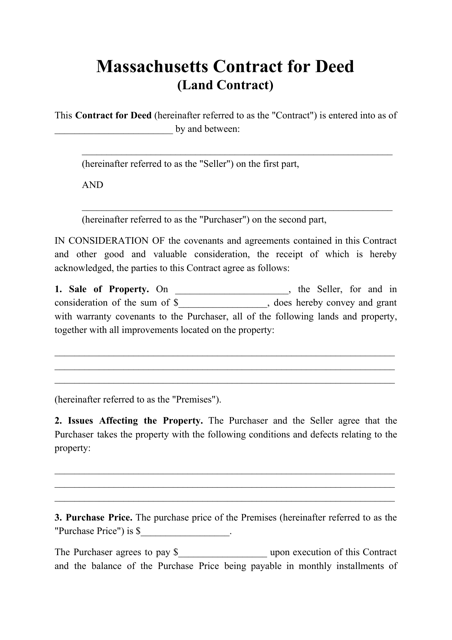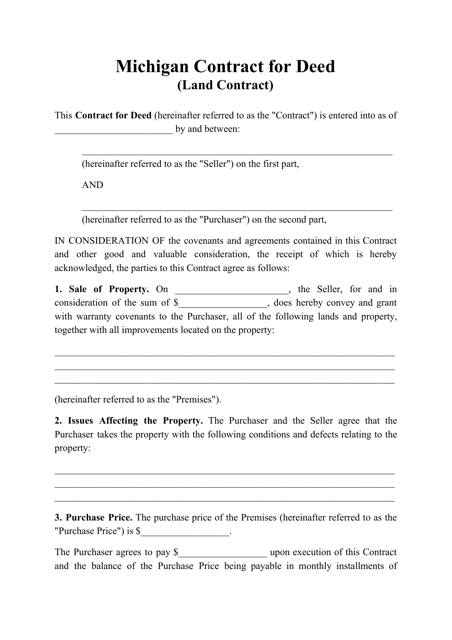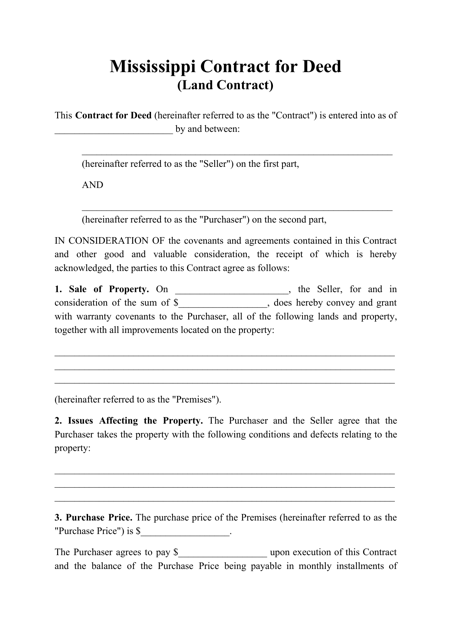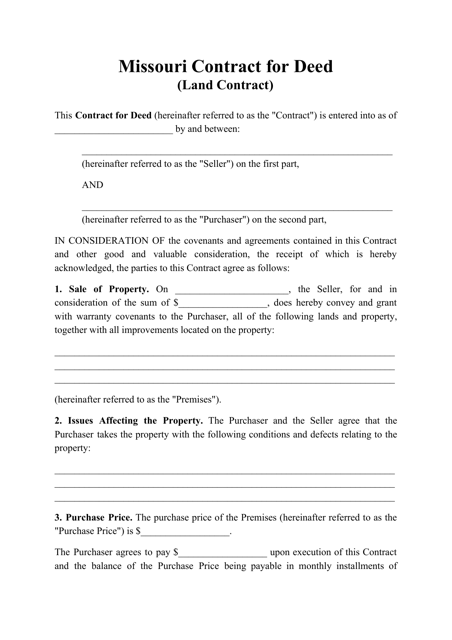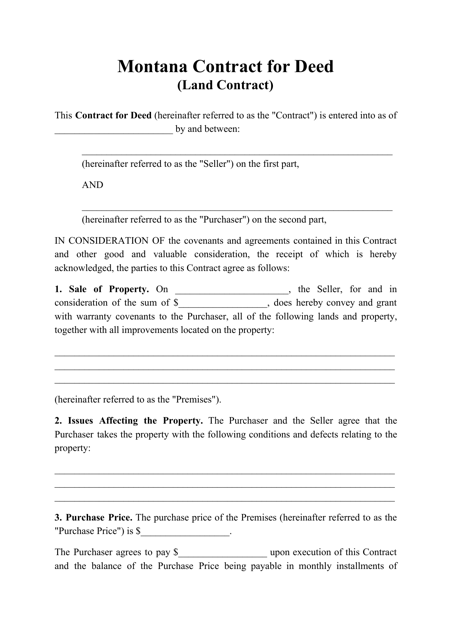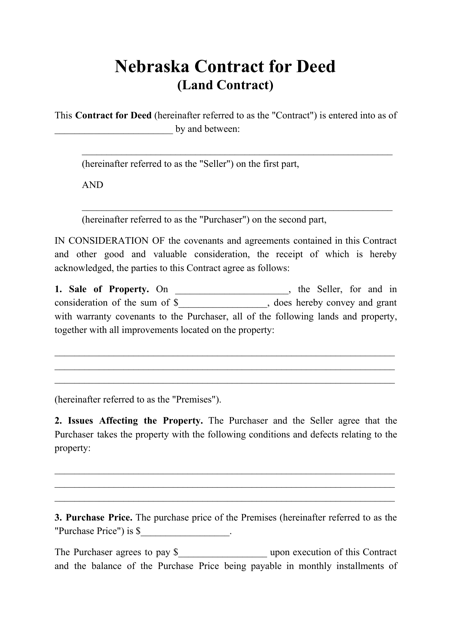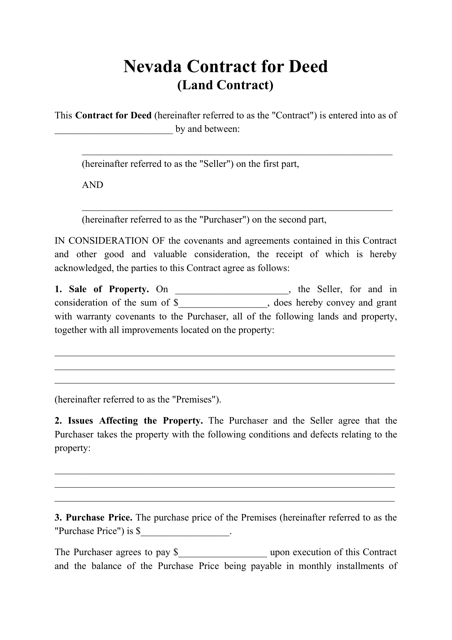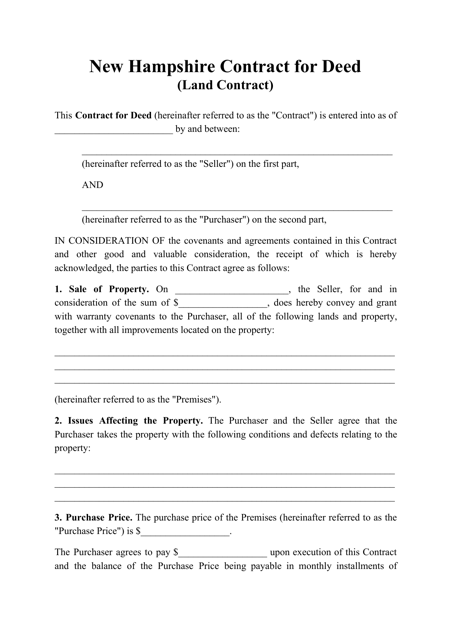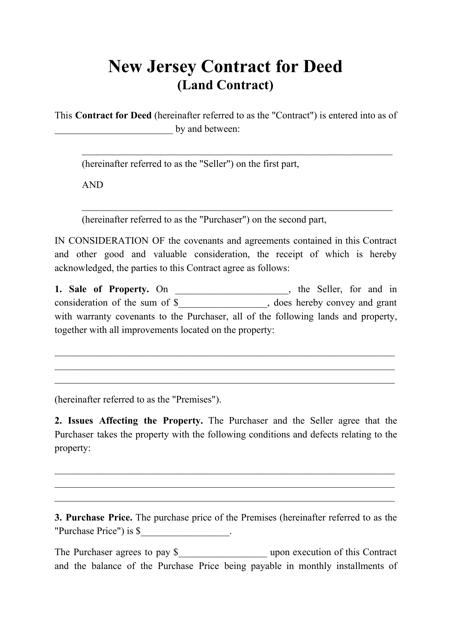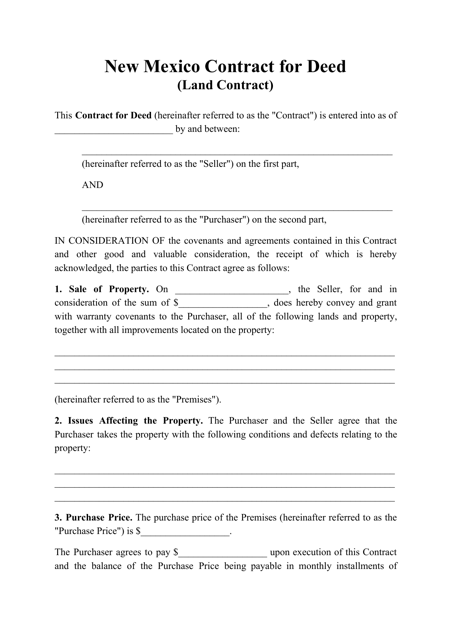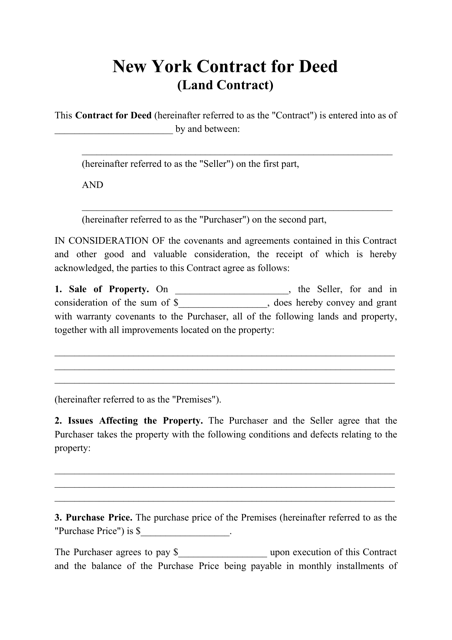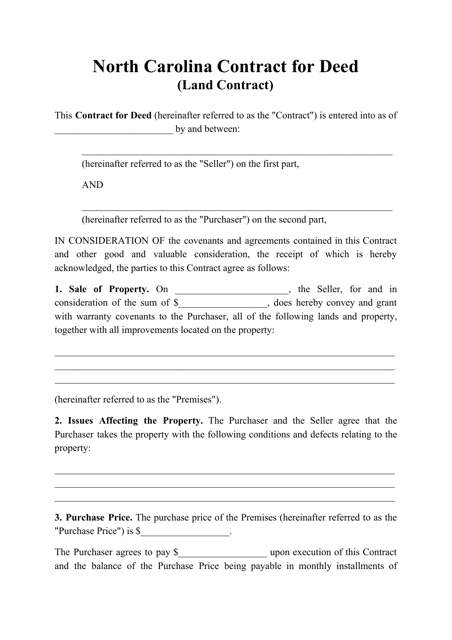Land Contract Forms by State
What Is a Land Contract?
A Land Contract is a legal agreement between a buyer and seller used to purchase real estate. A lot of Land Contracts are signed to buy not only land but also any piece of real estate with or without improvements, including vacant land for commercial use, a commercial building, a house, an apartment building, and others.
Alternate Name:
- Contract for Deed.
These contracts - not to be confused with Land Purchase Agreements - generally cover all the conditions of the bargain. They may include such aspects as the sales price, the number of monthly payments, the amount of down payment, the interest rate, and the duties of both parties. Select your state from the list below to download a printable template or use our online form builder to make your own Land Contract.
Land Contracts by State
Land Contract requirements differ by state. Though the contract is negotiable and many terms and conditions are established by the parties, the state often provides a standardized form that lays out a basic template for your agreement. Besides, local laws may define specific requirements. For instance, in Ohio you cannot sign a Land Contract on vacant land; in Florida, the buyer has a 7-day period to cancel the contract and the seller has to pay back all the money received, and so on. That is why it is very important to make a thorough research about the state laws before making a decision.
Benefits of a Land Contract
Buying through a contract has its benefits for both the seller and the buyer. Buyers prefer to use land purchase contracts when they are interested in buying a property, but cannot obtain a mortgage from a financial institution due to an unestablished or poor credit. In this case, a contract is signed according to which the buyer pays money directly to the seller on a monthly basis. For many buyers, it is the best way to purchase land or a home. Paying the due installments for several years may convince a financial institution that you are creditworthy and help you to get a loan for the last balloon payment often stipulated by the agreement.
The seller, albeit not receiving the full price at once, can also benefit from this type of contract. First of all, the buyer usually more readily agrees upon a higher price due to the inability to obtain any mortgage loan. Besides, the seller often demands a large down-payment and charges a higher interest rate.
How Does a Land Contract Work?
Buying a house on a contract always starts with an agreement on all parts of the document. After signing the contract and making the first required payment, the buyer obtains an equitable title to the property, while the seller still remains a legal titleholder. The buyer, as an equitable titleholder, has specific rights for the mentioned property. For example, if you purchase a house, you can move in and use the house and grounds as your own. However, you will often be limited to making changes in that property.
You are required to make payments on a monthly basis in the amount defined by the contract. The whole scheme is very similar to making payments on a mortgage. However, the full purchase price should often be paid years earlier than when dealing with a financial institution.
Be careful when signing a contract. Make sure the seller has a clear title to the property to avoid potential issues in this respect. Inspect the property thoroughly. If the seller agrees to fix any defects, add this condition to the contract or it will not be binding.
The legal title to the land or building you buy remains with the seller until you make a final payment and satisfy all the other conditions of your contract. Generally, the seller has no right to sell the property to a third party or subject it to an encumbrance or lien that may interfere with your interest. Upon meeting all the conditions of your land or house contract, the full rights to the property are transferred to you via a deed.
A Land Contract can be risky to the buyer. If you fail to meet all the conditions or make appropriate monthly payments, the seller can initiate a Land Contract forfeiture. Forfeiture is a court action that often results in your losing all the money you have paid on the contract and the property. Your equitable title will be abolished. The seller keeps the paid sums that often include a considerable down-payment and keeps the property that can now be sold to a third party.
Related Articles
Documents:
73
This form is used for issuing a forfeiture notice in a land contract agreement in Michigan.
This document is used for a land contract in the state of Wisconsin.
This form is used for submitting an application and order of eviction in Michigan for landlord-tenant or land contract disputes. It is available in Arabic.
This document is a summons form used in Michigan for landlord-tenant or land contract disputes. It is available in Arabic.
This form is used for submitting an order to release escrow in the state of Michigan for landlord-tenant or land contracts.
This document is used for a type of real estate transaction known as a contract for deed or land contract in the state of Alabama.
This document is used for purchasing real estate in Alaska through a contract for deed, also known as a land contract.
This document is used for a Contract for Deed, also known as a Land Contract, in the state of Arizona. It outlines the terms and conditions for the purchase of a property, where the buyer makes payments directly to the seller over time.
This document is used for a Contract for Deed (Land Contract) in the state of Arkansas. It outlines the terms and conditions for the sale of a property, where the buyer makes payments directly to the seller over a specified period of time until the purchase price is fully paid.
This document is used for buying or selling property in California through a contract for deed, also known as a land contract. It outlines the terms and conditions of the agreement between the buyer and seller.
This document is used for a Contract for Deed, also known as a Land Contract, in the state of Colorado.
This document is a Contract for Deed, also known as a Land Contract, specific to the state of Connecticut. It outlines the terms and conditions for the purchase of property where the seller retains the title until the buyer completes payments.
This type of document is used for purchasing real estate in Delaware through a contract for deed, also known as a land contract. It outlines the terms and conditions of the sale and the buyer's agreement to make installment payments to the seller until the property is fully paid off.
This document is a legal contract used in Florida when buying or selling property. It is an agreement between the buyer and seller where the buyer agrees to make payments directly to the seller, allowing them to occupy the property while paying off the purchase price over time.
This type of document is used for a real estate transaction in the state of Georgia. It is a legally binding contract between a buyer and a seller, where the buyer agrees to make regular payments to the seller until the full purchase price is paid, and the seller agrees to transfer the title to the buyer once the payments are complete.
This document is used for the purchase of real estate in Hawaii through a contract for deed. It outlines the terms and conditions of the agreement between the buyer and seller, including the purchase price, payment schedule, and transfer of ownership.
This document is used for buying or selling property in Idaho through a contract for deed, also known as a land contract. It outlines the terms and conditions of the agreement between the buyer and seller, including the purchase price, payment schedule, and other important details.
This document is used for a Contract for Deed, also known as a Land Contract, in the state of Illinois. It outlines the terms and conditions for the sale and purchase of property, where the buyer makes installment payments directly to the seller over an agreed-upon period of time.
This document is a Contract for Deed, also known as a Land Contract, specific to the state of Indiana. It outlines the terms and conditions for the purchase of property, where the buyer makes payments directly to the seller over time until the full purchase price is paid.
This document is used for a contract known as a Land Contract or Contract for Deed in Iowa. It outlines the terms and conditions of a purchase agreement for land, where the buyer agrees to make installment payments directly to the seller until the full purchase price is paid off.
This document is a type of contract used in Kansas for the sale of land. It allows the buyer to make installment payments to the seller instead of obtaining traditional financing from a bank.
This document is used for selling property in Kentucky through a contract for deed, also known as a land contract. It outlines the terms and conditions of the sale, including payment plans and ownership transfer.
This document is used in Louisiana for a contract called "Contract for Deed" or "Land Contract". It outlines the terms and conditions for buying or selling land, where the seller retains ownership until the buyer completes payment.
This document is used for a contract between a buyer and a seller for the sale of land in Maine. It is an agreement where the buyer pays the purchase price in installments and gains ownership rights after fulfilling the contract terms.
This document is used for the purchase of real estate in Maryland through a contract for deed, also known as a land contract.
This document is used for a contract for deed, also known as a land contract, in the state of Massachusetts. It is a legal agreement between a buyer and a seller for the purchase of real estate where the buyer makes installment payments until the full purchase price is paid and they receive the deed to the property.
This document is used for a contract for deed, or land contract, in the state of Michigan. It outlines the terms and conditions for purchasing property where the seller retains ownership until the buyer fulfills the agreed-upon payments.
This document is used for a type of agreement known as a Contract for Deed, also referred to as a Land Contract, in the state of Mississippi.
This document is used to record an agreement between a buyer and seller for the sale of property in Missouri. It outlines the terms and conditions of the sale, including payment arrangements and the transfer of ownership.
This document is a legally binding agreement used in Montana for the sale of a property where the seller finances the purchase and retains the title until the buyer fulfills the payment.
This document is used for a Contract for Deed, also known as a Land Contract, in Nebraska. It outlines the terms and conditions for the sale of land, where the buyer makes payments directly to the seller until the full purchase price is paid.
This document is a legally binding contract used in Nevada for the sale of land. It allows the buyer to make installment payments and take possession of the property while the seller retains legal ownership until the full purchase price is paid.
This document is a legal agreement used in New Hampshire for the sale of real estate where the seller finances the purchase instead of a traditional mortgage.
This document is used for a contract for deed, also known as a land contract, in the state of New Jersey. It is a legally binding agreement between a buyer and seller for the purchase of property, where the buyer agrees to make payments directly to the seller over a specified period of time.
This document is used for the sale of property in New Mexico where the seller acts as the lender and the buyer makes installment payments.
This document is used for a contract known as a "Contract for Deed" or "Land Contract" in the state of New York. It outlines the terms and conditions for the purchase of land, where the buyer agrees to make installment payments directly to the seller rather than obtaining financing from a traditional lender.
This type of document is a legal agreement used in North Carolina for the purchase of real estate. It acts as an alternative to a traditional mortgage and allows the buyer to make payments directly to the seller over time.

